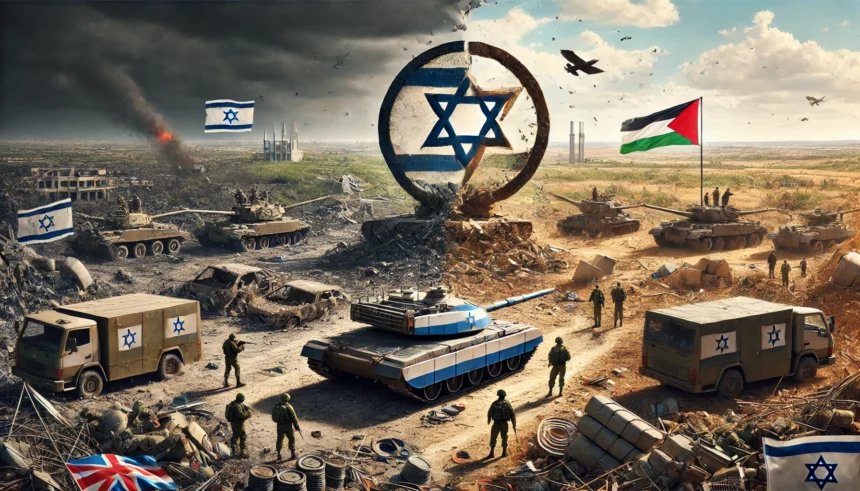Summary by Geopolist | Istanbul Center for Geopolitics:
The article from Foreign Affairs explores the ramifications of the October 7, 2023, Hamas attack on Israel, highlighting how it shattered Israel’s belief in its military superiority and security stability. The attack, which caught Israeli military and intelligence agencies off guard despite prior knowledge of Hamas’s activities, led to widespread shock and a national crisis. The fallout has shaken the public’s faith in Prime Minister Benjamin Netanyahu, whose longstanding reputation as “Mr. Security” is now under intense scrutiny. The IDF’s late response, the large number of casualties, and subsequent military operations in Gaza revealed significant failures in leadership and preparedness.
In response to the attack, Netanyahu established a wartime unity cabinet and mobilized 250,000 reservists for a counteroffensive that was designed to undermine Hamas’s military capabilities. Although the Israeli Defense Forces (IDF) were able to seize control of portions of Gaza and demolish critical Hamas infrastructure, the conflict has resulted in the displacement of millions of Palestinians and the loss of thousands of lives. The article explains that the war effort, despite the military gains, has not resulted in a decisive victory, despite the fact that it has punished Hamas. Consequently, many Israelis perceive the situation as a defeat.
This crisis is further exacerbated by the political instability of Israel. Netanyahu’s controversial initiative to reform Israel’s judiciary, which was designed to consolidate more authority within his right-wing coalition, has been temporarily halted by the conflict. Despite the existence of a unity government, political infighting continues, and Netanyahu’s continued tenure in office has been contingent upon his ability to retain the backing of his far-right allies. This encompasses hardliners such as Finance Minister Bezalel Smotrich and National Security Minister Itamar Ben-Gvir, whose aggressive policies have exacerbated domestic tensions and further isolated Israel on an international scale.
The article also explores the influence of the conflict on the broader geopolitical landscape of Israel. Hezbollah initiated a second front in the north in response to Hamas’s attack, which compelled Israel to engage militarily in Lebanon. In a dramatic escalation, Israel assassinated Hezbollah’s leader, Hassan Nasrallah, thereby inciting an even more extensive conflict. Although these actions have momentarily increased the morale of the Israeli public, the article cautions that such confrontations pose a risk of involving Israel in a more dangerous and protracted regional conflict with Iran.
Domestically, the war has exacerbated preexisting social and political divisions, thereby undermining the potential for unity. Netanyahu’s critics accuse him of prioritizing political survival over national interest, citing his unwillingness to negotiate captive releases and his willingness to escalate conflicts in order to divert attention from his shortcomings. The article posits that Israel’s long-term security and democratic values are now more vulnerable than they have ever been, despite the short-term gains in Gaza and Lebanon.
The article concludes by imploring Israel to reconsider its policies regarding Palestinians and adopt a novel approach to the peace process. Israel is at risk of becoming trapped in a cycle of violence and instability that will further erode its democracy, security, and standing in the region if it fails to address the underlying causes of conflict and pursue a viable two-state solution. The article contends that Netanyahu’s present approach is predisposing Israel to a more perilous future, increased internal divisions, and increased isolation.
Read the full article here.







